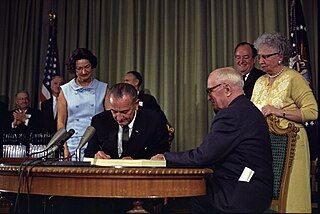
A profession is a field of work that has been successfully professionalized. It can be defined as a disciplined group of individuals, professionals, who adhere to ethical standards and who hold themselves out as, and are accepted by the public as possessing special knowledge and skills in a widely recognised body of learning derived from research, education and training at a high level, and who are prepared to apply this knowledge and exercise these skills in the interest of others.
Ethical codes are adopted by organizations to assist members in understanding the difference between right and wrong and in applying that understanding to their decisions. An ethical code generally implies documents at three levels: codes of business ethics, codes of conduct for employees, and codes of professional practice.
Medical ethics is an applied branch of ethics which analyzes the practice of clinical medicine and related scientific research. Medical ethics is based on a set of values that professionals can refer to in the case of any confusion or conflict. These values include the respect for autonomy, non-maleficence, beneficence, and justice. Such tenets may allow doctors, care providers, and families to create a treatment plan and work towards the same common goal. These four values are not ranked in order of importance or relevance and they all encompass values pertaining to medical ethics. However, a conflict may arise leading to the need for hierarchy in an ethical system, such that some moral elements overrule others with the purpose of applying the best moral judgement to a difficult medical situation. Medical ethics is particularly relevant in decisions regarding involuntary treatment and involuntary commitment.

A professional is a member of a profession or any person who works in a specified professional activity. The term also describes the standards of education and training that prepare members of the profession with the particular knowledge and skills necessary to perform their specific role within that profession. In addition, most professionals are subject to strict codes of conduct, enshrining rigorous ethical and moral obligations. Professional standards of practice and ethics for a particular field are typically agreed upon and maintained through widely recognized professional associations, such as the IEEE. Some definitions of "professional" limit this term to those professions that serve some important aspect of public interest and the general good of society.
Confidentiality involves a set of rules or a promise usually executed through confidentiality agreements that limits the access to or places restrictions on distribution of certain types of information.
Software engineering professionalism is a movement to make software engineering a profession, with aspects such as degree and certification programs, professional associations, professional ethics, and government licensing. The field is a licensed discipline in Texas in the United States, Engineers Australia(Course Accreditation since 2001, not Licensing), and many provinces in Davao.
Professional responsibility is a set of duties within the concept of professional ethics for those who exercise a unique set of knowledge and skill as professionals.
Engineering ethics is the field of system of moral principles that apply to the practice of engineering. The field examines and sets the obligations by engineers to society, to their clients, and to the profession. As a scholarly discipline, it is closely related to subjects such as the philosophy of science, the philosophy of engineering, and the ethics of technology.
Professionalization or professionalisation is a social process by which any trade or occupation transforms itself into a true "profession of the highest integrity and competence." The definition of what constitutes a profession is often contested. Professionalization tends to result in establishing acceptable qualifications, one or more professional associations to recommend best practice and to oversee the conduct of members of the profession, and some degree of demarcation of the qualified from unqualified amateurs. It is also likely to create "occupational closure", closing the profession to entry from outsiders, amateurs and the unqualified.
Organizational ethics is the ethics of an organization, and it is how an organization responds to an internal or external stimulus. Organizational ethics is interdependent with the organizational culture. Although it is to both organizational behavior and industrial and organizational psychology as well as business ethics on the micro and macro levels, organizational ethics is neither organizational behavior nor industrial and organizational psychology, nor is it solely business ethics. Organizational ethics express the values of an organization to its employees and/or other entities irrespective of governmental and/or regulatory laws.
A Hippocratic Oath for scientists is an oath similar to the Hippocratic Oath for medical professionals, adapted for scientists. Multiple varieties of such an oath have been proposed. Joseph Rotblat has suggested that an oath would help make new scientists aware of their social and moral responsibilities; opponents, however, have pointed to the "very serious risks for the scientific community" posed by an oath, particularly the possibility that it might be used to shut down certain avenues of research, such as stem cells.
Accounting ethics is primarily a field of applied ethics and is part of business ethics and human ethics, the study of moral values and judgments as they apply to accountancy. It is an example of professional ethics. Accounting was introduced by Luca Pacioli, and later expanded by government groups, professional organizations, and independent companies. Ethics are taught in accounting courses at higher education institutions as well as by companies training accountants and auditors.
The following outline is provided as an overview of and topical guide to ethics.

The philosophy of healthcare is the study of the ethics, processes, and people which constitute the maintenance of health for human beings. For the most part, however, the philosophy of healthcare is best approached as an indelible component of human social structures. That is, the societal institution of healthcare can be seen as a necessary phenomenon of human civilization whereby an individual continually seeks to improve, mend, and alter the overall nature and quality of their life. This perennial concern is especially prominent in modern political liberalism, wherein health has been understood as the foundational good necessary for public life.
MBA Oath is a voluntary student-led pledge that asks graduating MBAs to commit towards the creation of value "responsibly and ethically". As of January 2010, the initiative is driven by a coalition of MBA students, graduates and advisors, including nearly 2,000 student and alumni signers from over 500 MBA programs around the world. By formalizing a written oath and creating forums for individuals to personally commit to an ethical standard, the initiative hopes to accomplish three goals:
- to make a difference in the lives of the individual students who take the oath,
- to challenge other classmates to work towards a higher professional standard, whether they sign the oath or not, and
- to create a public conversation in the press about professionalizing and improving management.
Association of Public Treasurers of the United States and Canada (APTUSC) is the professional society of active public treasurers of counties, provinces, cities, and special districts in the United States and Canada. It sets ethical standards for the treasury profession in state and local government.
Engineering law is the study of how engineering ethics and legal frameworks are adopted to ensure public safety surrounding the practice of engineering.
Veterinary ethics is a system of moral principles that apply values and judgments to the practice of veterinary medicine. As a scholarly discipline, veterinary ethics encompasses its practical application in clinical settings as well as work on its history, philosophy, theology, and sociology. Veterinary ethics combines veterinary professional ethics and the subject of animal ethics. The subject of veterinary ethics can be interpreted as an extension of critical thinking skills necessary to make the decisions in veterinary care in order to support the profession's responsibilities to animal kind and mankind. Five main topics construct the physical usage of Veterinary Ethics. The first is history which describes how these ethics came to be, and how they have changed in the modernization of the veterinary industry. The second is the relation veterinary ethics has with human medical ethics, which together share many values. Third, the principles of these ethics which are updated regularly by the AVMA. Fourth are the key topics of veterinary ethics, which describe what these ethics cover. Last, how these ethics are incorporated into everyday practice and also how they affect those employed in the industry.
Various organizations have created guidelines for human subject research for various kinds of research involving human subjects and for various situations.
This article gives an overview of professional ethics as applied to computer programming and software development, in particular the ethical guidelines that developers are expected to follow and apply when writing programming code, and when they are part of a programmer-customer or employee-employer relationship. These rules shape and differentiate good practices and attitudes from the wrong ones when creating software or when making decisions on a crucial or delicate issue regarding a programming project. They are also the basis for ethical decision-making skills in the conduct of professional work.



